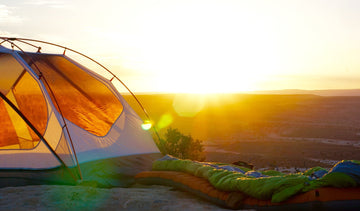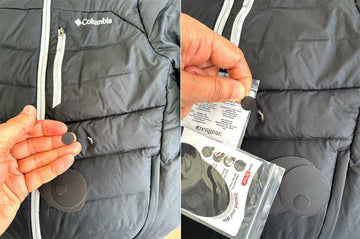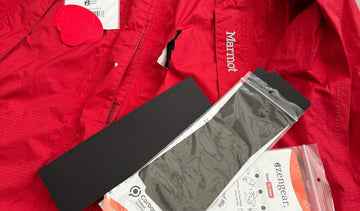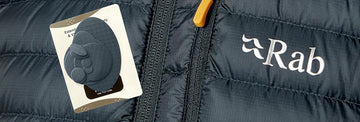Are you planning a camping trip but worried about staying safe? Camping can be a fun and exciting experience, but it's important to take precautions to ensure your safety while in the great outdoors. In this article, we'll explore the best ways to stay safe at the campsite.
Understanding the Hazards of Camping
Before you head out to the campsite, it's important to understand the potential hazards you may encounter. These can include wildlife encounters, dangerous terrain, severe weather conditions, and more. By understanding these hazards, you can take steps to prevent accidents and stay safe during your camping trip.
Essential Camping Safety Gear
When it comes to camping safety, having the right gear is essential. This includes a first aid kit, a map and compass, a flashlight or headlamp, and plenty of water and food. You should also bring appropriate clothing and gear for the weather conditions, as well as a whistle, a fire starter, and a multi-tool.
Setting Up Your Campsite Safely
When setting up your campsite, it's important to choose a safe location that is free from hazards such as loose rocks or steep drop-offs. You should also set up your tent and other gear in a way that is secure and stable, and avoid camping near dead trees or areas that may be prone to flooding.
Campfire Safety Tips
Campfires are a common part of the camping experience, but they can also be dangerous if not handled properly. Always make sure your fire is contained in a fire ring or pit, and never leave it unattended. Keep a bucket of water or a shovel nearby in case of emergency, and never burn trash or anything that could cause a wildfire.
Wildlife Safety Tips
While camping, you may encounter wildlife such as bears, snakes, or insects. To stay safe, it's important to keep your distance and avoid approaching or feeding any animals. Keep your food stored safely away from your sleeping area, and make noise while hiking to alert animals to your presence.
Weather Safety Tips
Weather conditions can change quickly while camping, so it's important to stay aware of any changes in the forecast. Always bring appropriate clothing and gear for the weather, and be prepared for rain or storms. Seek shelter in your tent or vehicle if lightning is present.
Personal Safety Tips
When camping, it's important to stay aware of your surroundings and avoid taking unnecessary risks. Always tell someone where you are going and when you expect to return, and avoid traveling alone if possible. If you encounter other campers or strangers, trust your instincts and be cautious.
Food and Water Safety Tips
Proper food and water safety is essential to prevent illness while camping. Always wash your hands before handling food, and keep your cooking area clean and free from any potential contaminants. Use a water filter or purifier to ensure your water is safe to drink, or boil it for at least 3-5 minutes before drinking.
First Aid Tips for Camping Emergencies
In the event of a camping emergency, it's important to know basic first aid skills. This includes knowing how to clean and dress wounds, treat burns or blisters, and recognize signs of dehydration or heat stroke. You should also have a basic understanding of CPR and how to perform it in case of an emergency.
Emergency Planning and Communication
In case of an emergency, it's important to have a plan in place and to communicate it with your camping companions. This includes identifying the nearest hospital or emergency services, as well as carrying a phone or communication device with you at all times. You should also make sure that someone back home knows your itinerary and expected return date.
Leave No Trace Principles for Camping
One of the most important aspects of camping safety is practicing the Leave No Trace principles. This means leaving the campsite as you found it, avoiding damaging natural areas or habitats, and properly disposing of waste and trash. By practicing Leave No Trace, you can help preserve the environment and ensure that others can enjoy it as well.
Common Camping Safety Mistakes to Avoid
When it comes to camping safety, there are some common mistakes that people make that can lead to accidents or injuries. These include not properly securing gear or equipment, not wearing appropriate clothing or footwear, and not properly planning for emergencies or unexpected weather conditions.
Benefits of Safe Camping
By following these camping safety tips, you can enjoy a safe and enjoyable camping experience. Not only will this help prevent accidents or injuries, but it can also help you fully immerse yourself in the natural environment and enjoy all that the outdoors has to offer.
Conclusion
Camping can be a fun and exciting experience, but it's important to take precautions to ensure your safety while in the great outdoors. By understanding the hazards of camping, having the right gear, setting up your campsite safely, and following safety tips for campfires, wildlife, weather, and personal safety, you can stay safe while enjoying your camping trip.
Frequently Asked Questions about Camping Safety
- What should I do if I encounter a bear while camping?
If you encounter a bear while camping, stay calm and avoid approaching it. Slowly back away and give the bear plenty of space. Make noise to alert the bear to your presence, and never run or climb a tree.
- What should I do if someone in my camping group gets injured?
If someone in your camping group gets injured, assess the situation and provide basic first aid if necessary. If the injury is serious, call for emergency services or seek medical attention as soon as possible.
- Can I bring my dog camping with me?
Many campsites allow dogs, but it's important to check ahead of time and follow any rules or restrictions. You should also make sure your dog is properly trained and up-to-date on vaccinations, and keep it on a leash or under control at all times.
- What should I do if I get lost while hiking or camping?
If you get lost while hiking or camping, stay calm and try to retrace your steps. Use a map or compass to orient yourself, and look for any landmarks or signs that can help guide you back to your campsite or the nearest trailhead.
- What should I do if there's a wildfire in the area while I'm camping?
If there's a wildfire in the area while you're camping, stay aware of the situation and follow any instructions or evacuation orders from local authorities. Make sure you have a plan in place and know the nearest escape routes, and avoid starting any fires or using any flammable materials.





